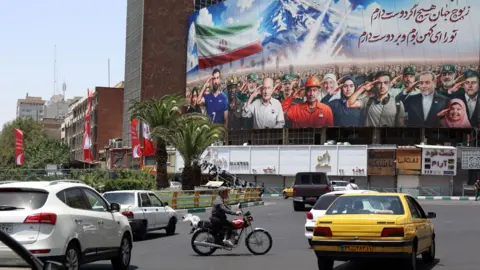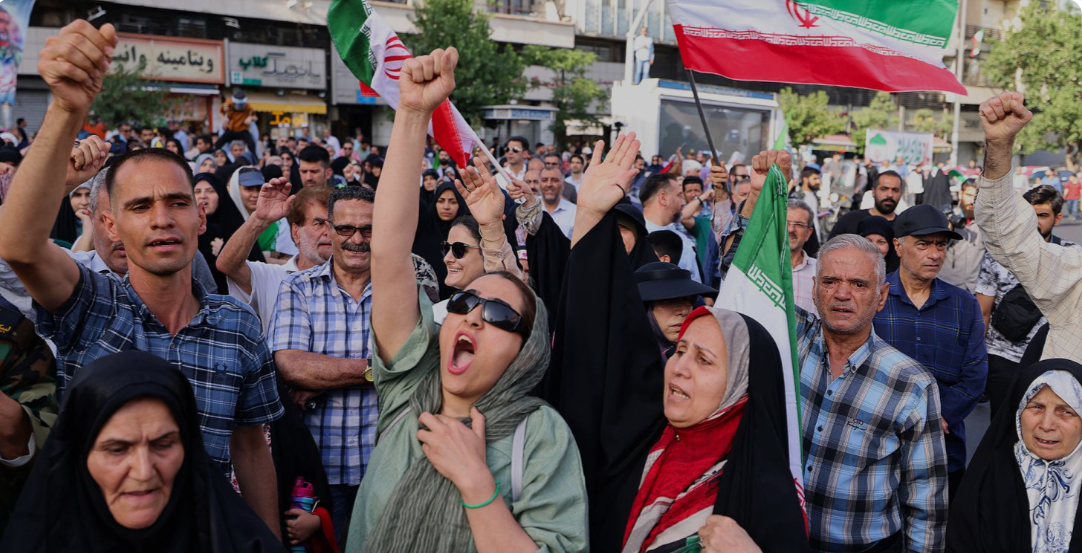Shahla, who asked for her name to be changed for safety, describes feeling paralyzed by the events. “My days and nights are the same. I just stare at the ceiling all day and all night,” she says, echoing the sense of shock and helplessness that has gripped many.
The strikes, which targeted the Isfahan, Natanz, and Fordo nuclear facilities, have sparked both anger and sorrow. President Trump declared the sites “obliterated” and warned Iran’s leaders that they now face a choice between “peace or tragedy.” In response, Iran’s foreign minister condemned the attack as a crossing of a “big red line” and promised lasting consequences.
 EPA
EPAThe situation has escalated rapidly, coming just over a week after Israel launched its own large-scale air campaign against Iran. The violence has resulted in hundreds of deaths, with conflicting reports on the true toll. In retaliation, Iran has launched missiles at Israeli cities, causing further casualties.
Amid these tensions, the Iranian government has tightened control over the internet, making it difficult for families to stay in touch and for accurate information to reach the public. Despite these restrictions, some have managed to share their feelings with the world.
Mehri, who also used a pseudonym, sent an audio message describing her overwhelming sorrow and anger. “I don’t think I’ve ever felt this level of sorrow and rage over anything in my life,” she says. Yet, she also finds a strange clarity in the chaos, feeling connected to something greater than herself. For Mehri, the conflict feels like a battle between three powerful leaders, each driven by their own ambitions.
For others, the strikes have stirred a sense of national pride and determination. Homayoun, from the northwestern city of Maku, insists that Iranians will stand by their country no matter the hardship. “We’ll stand by our country to the very end. And if needed, we’ll give our lives for our homeland, for our honour,” he declares.
The rhetoric between the US and Iran remains heated. President Trump has warned that any retaliation will be met with overwhelming force, while Iranian officials insist they will defend their country by any means necessary. The Islamic Revolutionary Guard Corps has even described US bases in the region as vulnerabilities rather than strengths, and some hardliners have called for bold action against American interests in the Gulf.
Yet, not all Iranians are calling for escalation. One man hopes that the conflict has reached its peak and that the worst is now behind them. With a child on the way, he dreams of a new Iran—one that embraces change from within and focuses on real threats rather than policing its own people.
Others question the cost of Iran’s nuclear ambitions, lamenting the sacrifices made over the years. Farhad, another pseudonym, expresses a cautious hope for the future, even as he acknowledges the pain of the past.
At the border with Armenia, a young woman who fled Tehran with her family voices her opposition to foreign-imposed regime change. “We were trying to make changes ourselves inside, and I don’t think a change coming from the US or Israel would be a good change,” she says.
As Iran faces an uncertain future, its people continue to grapple with fear, anger, and hope—determined to shape their own destiny amid the turmoil.


